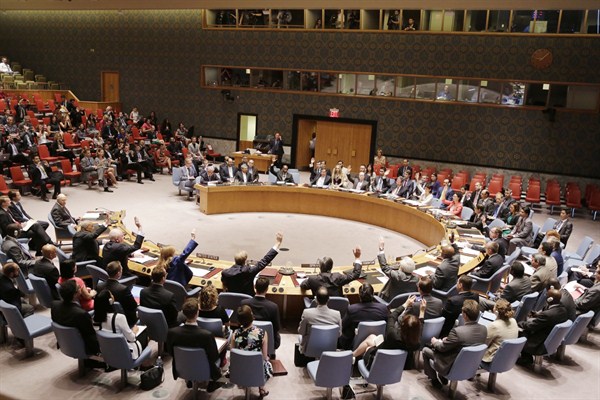Yesterday, the U.N. Security Council adopted Resolution 2231, which confirmed key provisions of the nuclear deal—officially known as the Joint Comprehensive Plan of Action (JCPOA)—adopted last week by Iran and its P5+1 negotiating partners, comprising the U.S., France, the U.K., Russia, China and Germany.
In her speech marking the resolution’s enactment, Samantha Power, the U.S. ambassador to the United Nations, drew several lessons from the lengthy efforts to constrain Iran’s nuclear aspirations. These included the requirement for vigorous enforcement of global nonproliferation norms, the value of “tough, principled diplomacy,” the need for effective implementation of negotiated agreements and the imperative of international unity against proliferation threats.
This list is fine as a starting point, but the Iranian nuclear file raises just as many questions as it answers. Certainly, the lengthy and intense negotiations offer a rich field for research and reflection on the important nonproliferation issues involved. Yet, while there are grounds for optimism, even hopeful hypotheses require confirmation.

